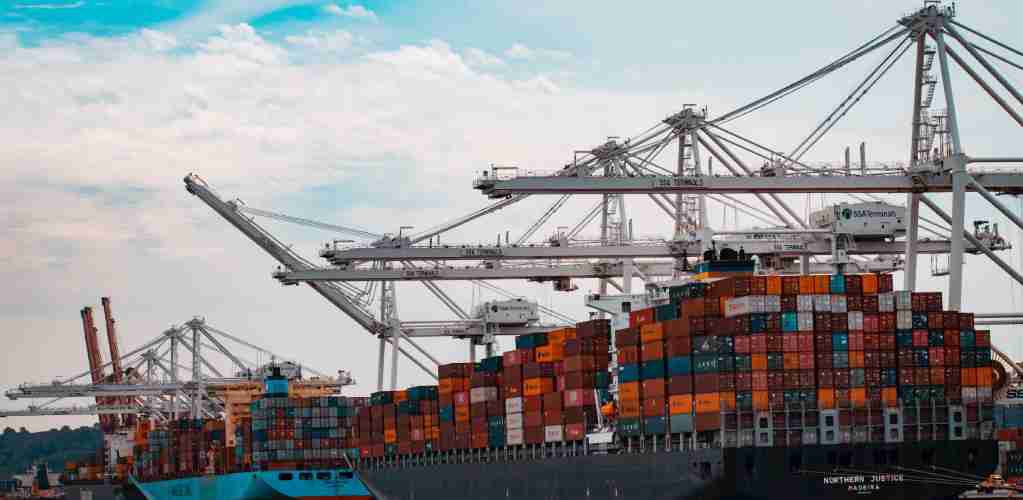
Less Than Container Load (LCL) shipping is a viable option for ocean freight, especially for smaller loads. LCL allows shippers to combine their cargo with other shipments in a single container, cutting costs and increasing productivity. However, for accurate computation of ocean freight rates and charges and to ensure smooth logistics operations, it's imperative to comprehend the significance of dimensions in LCL shipping. Using a tool like a CBM Calculator can aid in determining the cargo volume accurately, ensuring proper space utilization.
In this blog post, we'll examine ten ideas to help you comprehend the significance of dimensions in LCL shipping.
Understanding The Importance of Dimensions in LCL: Top 10
Know the Basics of LCL Shipping
Shipping goods that do not completely fill a container is called LCL shipping. Instead, a container will contain several shipments coming from various shippers. The volume and amount of space your cargo takes up inside the container are highly dependent on the dimensions of your cargo.
Accurate Dimensions for Precise Freight Rates
For exact LCL freight rates to be determined, you must provide the exact dimensions of your cargo. Shipping companies calculate the cost based on variables like weight, volume, and the amount of room your cargo takes up inside the container. Accurate measurements enable better cost estimation, preventing unforeseen costs in the future.
Understand Freight Classifications
Cargo is categorized using freight classifications according to its size, weight, density, and handling needs. Comprehending the freight classification system is essential because it affects LCL rates. Ensure that your cargo is correctly classified in accordance with industry standards to prevent discrepancies
Consider Packaging and Palletization
Proper palletization and packaging can significantly change your cargo's dimensions. Goods that are properly packaged and make good use of available space can reduce volume overall and possibly result in cost savings. Make sure your cargo is properly palletized and packaged to make the most of the container space.
Avoid Non-Stackable Items
Due to their size, shape, or fragility, some items are considered non-stackable. These items may increase the shipment volume while decreasing the available space inside the container. When organizing your LCL shipment, try to avoid shipping non-stackable items or take their dimensions into consideration.
Utilize Load Calculation Tools
You can estimate the size and volume of your cargo using the load calculation tools offered by many freight forwarders and shipping firms. These resources can be very helpful for getting precise measurements and making the most of the available space inside the container.
Optimize Cargo Consolidation
In order to be cost-effective, LCL shipping depends on the combination of several shipments. Cooperate with your freight forwarder to ensure the best possible cargo consolidation with other shipments to maximize savings. Effective consolidation reduces unused container space, lowering costs for all parties.
Understand LCL Surcharge Calculations
LCL shipments frequently incur additional charges depending on the quantity and type of cargo. Your cargo might be subject to additional fees, for instance, if it is deemed irregular or exceeds certain dimensions. To prepare for and anticipate additional costs, familiarize yourself with the methods used by shipping carriers to calculate surcharges.
Ensure Accurate Documentation
In LCL shipping, accurate documentation is essential. This includes the bill of lading, packing lists, and commercial invoices. Documentation errors or omissions can cause delays, extra costs, or non-compliance problems. Give accurate dimensions and descriptions of your cargo to prevent delays or other issues with shipping.
Partner with a Reliable Freight Forwarder
Working with a reputable freight forwarder with LCL shipping experience can make logistics procedures more efficient. In addition to providing precise freight rate estimates and ensuring effective communication with shipping companies, they can guide you in conducting the sophistication of dimension calculations. Your LCL shipments will be optimized, and your costs will be efficiently reduced with the aid of a reliable partner.
Conclusion
Optimizing costs and logistics effectiveness in ocean freight transportation requires a thorough understanding of the significance of dimensions in LCL shipping. You can improve your knowledge of the importance of dimensions in LCL shipping and your shipping techniques by considering the above mentioned ten suggestions.
You can more effectively estimate costs with accurate dimension measurements because they enable accurate freight rate calculations. To maximize container space utilization and cut shipping costs, it is important to understand freight classifications and ensure that the goods are properly packaged and palletized.
Essential tactics to maximize space inside the container include avoiding non-stackable items and using load calculation tools. Working together with your freight forwarder can maximize savings for all parties and improve cargo consolidation.
It's crucial to become familiar with LCL surcharge calculations and plan for any supplementary costs that might be incurred because of irregular cargo dimensions or characteristics. To prevent delays and compliance issues, it is essential to ensure that all paperwork, including the bill of lading and packing lists, is accurate.
Dimensions are important for LCL shipping because they impact the cost of freight, how much space is used in containers, and the efficiency of the logistics process as a whole. The ten recommendations in this blog can help you better understand dimension calculations and help you make decisions that are reasonable and will enhance your LCL shipping procedures.
Learn ten crucial hints to assist you in accurately calculating freight rates, optimizing container space utilization, and streamlining logistics operations. You can access a comprehensive platform that makes LCL shipping easier and guarantees seamless coordination with shipping carriers when FreightMango is by your side.





 Get instant quote
and compare offers in real time
Get instant quote
and compare offers in real time